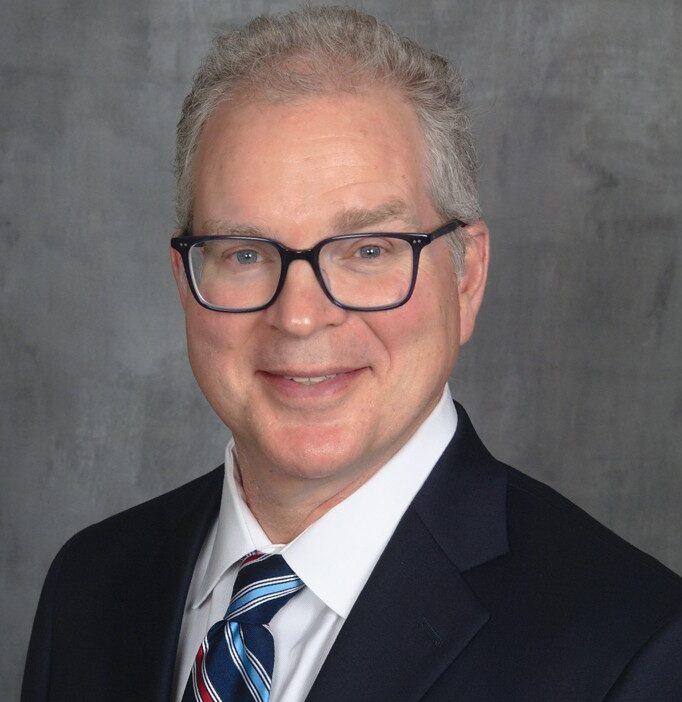Primary Care Physicians Manage Most Mental Health Prescriptions Today. Here’s How Behavioral Health Can Maintain the Right Relationship with PCPs

“Because of the overlap in care and comorbidities between behavioral and physical disorders, communicating, collaborating and treating the patient as a whole person becomes incredibly important.”
Bernard DiCasimirro, D.O. – Chief Medical Officer
Behavioral health treatment is not as simple as filling a prescription or scheduling a single therapy session. There are many players involved when it comes to coordinating the successful delivery of care. Health plans should foster an ongoing working relationship between primary care providers (PCPs) and behavioral health providers to track outcomes and monitor medication adherence. In our latest webinar, Lucet’s Bernard DiCasimirro, D.O., Chief Medical Officer and Leza Ogren, VP of Clinical Operations, discuss best practices for streamlining the member care journey — from health coverage to regular PCP visits and prescription to therapy session progress — emphasizing that clear and frequent communication between stakeholders is an essential ingredient to desired outcomes.
Primary care and behavioral health collaboration has a critical impact
Each member’s behavioral health care journey is unique, as there is no one-size-fits-all approach to mental wellness. Recommended therapies — whether it be cognitive behavioral therapy, dialectical behavior therapy, or group and family therapy — plus prescribed treatment plans are tailored to the individual’s specific needs.
The provider who conducts the initial assessment and diagnosis formulates the treatment plan based on the member’s needs. While psychiatrists, nurse practitioners, and physician assistants with psychiatric specialties often prescribe medications, according to the Journal of Primary Care & Community Health, today it is PCPs who are delivering 60% of mental health care and writing 79% of prescriptions for antidepressants. These providers may not have the specialized experience required for managing psychiatric disorders. Ensuring effective collaboration between primary care and behavioral health providers is critical in these cases.
Additionally, between 30% and 50% of members with behavioral health diagnoses also have one or more chronic medical conditions managed by their PCP. This overlap between mental and physical health makes cross-provider collaboration essential. It starts with treating the patient as a whole person and implementing processes for coordinating services and fostering communication between the providers who are collectively working to guide the member toward wellness.
“Because of the overlap in care and comorbidities between behavioral and physical disorders, communicating, collaborating and treating the patient as a whole person becomes incredibly important,” said Dr. DiCasimirro.

“Being able to support a member not only through the acute phase of care, but also as they move into a long-term phase of stability, is positively driven through the continued collaboration of treatment providers and the member.”
Leza Ogren, LICSW – Vice President of Clinical Operations
Member communication drives medication adherence tracking
Whenever medications are prescribed for a behavioral health condition, adherence must be a central focus of the treatment plan. This underscores the need for alignment between the PCP and behavioral health provider at every stage of the member care journey. The process begins with identifying the risk of non-compliance — when a patient may not consistently follow the prescribed medication regimen. Regardless of whether the prescription comes from a PCP or a psychiatrist, it is critical that both parties be fully informed of the prescription and the recommended treatment approach. For instance, if a PCP prescribes medication and the therapist observes changes in the member’s condition, communication among all involved parties is essential, especially if adjustments to the medication are needed over time.
It’s equally important to ensure that the member is actively included in care collaboration efforts as part of the treatment pathway. Both the PCP and behavioral health provider can play a key role in this process, ensuring that the member has a significant role in the medication adherence strategy. For example, behavioral health providers should assess from the beginning whether the member fully understands how to take their medication and if the instructions are clear to them. This starts with the PCP or the behavioral health provider giving the members clear guidance on when to take their meds, how to take them and what the side effects might be.
An open member-provider dialogue will also help in gauging a member’s ability to commit to their medication plan longitudinally and if necessary, proactively identify potential adherence challenges. During these conversations, providers should identify barriers to care, i.e. consistent transportation, so members can pick up their medications or access the necessary financial resources to cover co-pays and get ahead of these challenges before they impact treatment planning.
“Being able to support a member not only through the acute phase of care, but also as they move into a long-term phase of stability, is positively driven through the continued collaboration of treatment providers and the member,” said Ogren.
Facilitate a long-term relationship between primary and behavioral health care
The most effective approach to ensure a member’s medication adherence is to develop an infrastructure that supports ongoing, meaningful conversations between PCPs, behavioral health providers and members over the course of the relationship. This includes facilitating the seamless and timely exchange of critical health information when and where it is needed most. By doing so, changes in a member’s health status can be managed comprehensively, and any potential lapses in adherence can be addressed quickly and efficiently. Lucet’s Navigate & Connect solution manages this collaboration between PCPs and behavioral health providers by connecting patients to available care resources in a timely manner, as well as ensuring swift access to more intensive behavioral treatment resources when member needs arise.
Britta Nordstrom, MBA is a senior marketing specialist, Bernard DiCasimirro, D.O. is chief medical officer, and Leza Ogren, LICSW is vice president of clinical operations at Lucet.





